 W
WMax Alsberg was a famous criminal lawyer of the Weimar Republic.
 W
WKarl Artelt was a German revolutionary and a leader of the sailors' revolt in Kiel.
 W
WHans Bredow was a German radio broadcasting pioneer and the first chairman of Weimar Germany's National broadcasting service. He is regarded as the "father of German broadcasting".
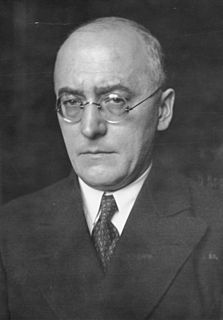 W
WHeinrich Aloysius Maria Elisabeth Brüning was a German Centre Party politician and academic, who served as Chancellor of Germany during the Weimar Republic from 1930 to 1932.
 W
WWilhelm Carl Josef Cuno was a German businessman and politician who was the Chancellor of Germany from 1922 to 1923, for a total of 264 days. His tenure included the episode known as the Occupation of the Ruhr by French and Belgian troops and the period in which inflation in Germany accelerated notably, heading towards hyperinflation. Cuno was also general director of the Hapag shipping company.
 W
WBruno Alfred Döblin was a German novelist, essayist, and doctor, best known for his novel Berlin Alexanderplatz (1929). A prolific writer whose œuvre spans more than half a century and a wide variety of literary movements and styles, Döblin is one of the most important figures of German literary modernism. His complete works comprise over a dozen novels ranging in genre from historical novels to science fiction to novels about the modern metropolis; several dramas, radio plays, and screenplays; a true crime story; a travel account; two book-length philosophical treatises; scores of essays on politics, religion, art, and society; and numerous letters—his complete works, republished by Deutscher Taschenbuch Verlag and Fischer Verlag, span more than thirty volumes. His first published novel, Die drei Sprünge des Wang-lung, appeared in 1915 and his final novel, Hamlet oder Die lange Nacht nimmt ein Ende was published in 1956, one year before his death.
 W
WWolfgang Doeblin, known in France as Vincent Doblin, was a French-German mathematician.
 W
WTheodor Duesterberg was a leader of Der Stahlhelm in Germany prior to the Nazi seizure of power.
 W
WConstantin Fehrenbach, sometimes falsely, Konstantin Fehrenbach, was a German Catholic politician who was one of the major leaders of the Centre Party or Zentrum. He served as President of the Reichstag in 1918, and then as President of the Weimar National Assembly from 1919 to 1920. In June 1920, Fehrenbach became Chancellor of Germany. He resigned in May 1921 over the issue of war reparation payments to the Allies. Fehrenbach headed the Centre Party's Reichstag fraction from 1923 until his death in 1926.
 W
WAnnelies Marie "Anne" Frank was a German-Dutch diarist of Jewish origin. One of the most discussed Jewish victims of the Holocaust, she gained fame posthumously with the publication of The Diary of a Young Girl, in which she documents her life in hiding from 1942 to 1944, during the German occupation of the Netherlands in World War II. It is one of the world's best known books and has been the basis for several plays and films.
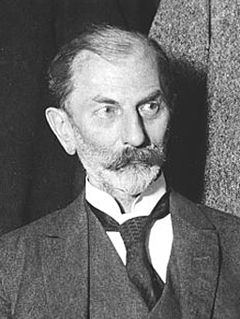 W
WRudolf E. A. Havenstein was a German lawyer and president of the Reichsbank during the hyperinflation of 1921–1923.
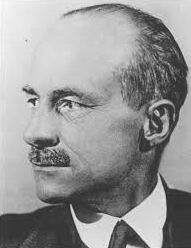 W
WWerner Hegemann was an internationally known city planner, architecture critic, and author. A leading German intellectual during the Weimar Republic, his criticism of Hitler and the Nazi party forced him to leave Germany with his family in 1933. He died prematurely in New York City in 1936.
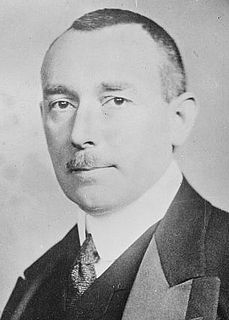 W
WKarl Theodor Helfferich was a German politician, economist, and financier from Neustadt an der Weinstraße in the Palatinate.
 W
WOskar Wilhelm Robert Paul Ludwig Hellmuth von Beneckendorff und von Hindenburg was a German Generalleutnant. The son and aide-de-camp to Field Marshal and Reich President Paul von Hindenburg had considerable influence on the appointment of Adolf Hitler as German chancellor in January 1933.
 W
WPaul Ludwig Hans Anton von Beneckendorff und von Hindenburg, typically known simply as Paul von Hindenburg, was a German general and statesman who led the Imperial German Army during World War I and later became President of Germany from 1925 until his death during the Weimar Republic. During his presidency, he played a key role in the Nazi Machtergreifung in January 1933 when, under pressure from advisers, he appointed Adolf Hitler as Chancellor of Germany.
 W
WJohann Georg, Prince von Hohenzollern was a German prince, and through his marriage to Princess Birgitta of Sweden, was brother-in-law of King Carl XVI Gustaf of Sweden.
 W
WMartin Luserke was a progressive pedagogue, a bard, writer and theatre maker. He was one of the leading figures of German progressive education and a precursor of outdoor education. As his distinguished achievement counts the integration of community theatre into school and youth work. It was also integrated in German Youth Movement.
 W
WHans Luther was a German politician and Chancellor of Germany for 482 days in 1925 to 1926. As Minister of Finance he helped stabilize the Mark during the hyperinflation of 1923. From 1930 to 1933, Luther was head of the Reichsbank and from 1933 to 1937 he served as German Ambassador to the United States.
 W
WRosa Luxemburg was a Polish Marxist, philosopher, economist, anti-war activist and revolutionary socialist who became a naturalized German citizen at the age of 28. Successively, she was a member of the Social Democracy of the Kingdom of Poland and Lithuania (SDKPiL), the Social Democratic Party of Germany (SPD), the Independent Social Democratic Party (USPD) and the Communist Party of Germany (KPD).
 W
WGeorg Ludwig Rudolf Maercker was a German general of World War I.
 W
WLuiz (Ludwig) Heinrich Mann was a German novelist who wrote works with social themes. From 1930 until 1933 he was president of the fine poetry division of the Prussian Academy of Arts. His numerous criticisms of the growth of National Socialism forced him to flee Germany after the National Socialist German Workers Party came to power during 1933.
 W
WPaul Thomas Mann was a German novelist, short story writer, social critic, philanthropist, essayist, and the 1929 Nobel Prize in Literature laureate. His highly symbolic and ironic epic novels and novellas are noted for their insight into the psychology of the artist and the intellectual. His analysis and critique of the European and German soul used modernized versions of German and Biblical stories, as well as the ideas of Johann Wolfgang von Goethe, Friedrich Nietzsche, and Arthur Schopenhauer.
 W
WMax Dienemann was a German rabbi, publicist and philologist. He was one of the leading Liberal rabbis in Germany. Together with Leo Baeck, he headed the Rabbinical Association of Germany, in which liberal and orthodox rabbis were organized. In 1935, he ordained Regina Jonas, the first female rabbi in Jewish history.
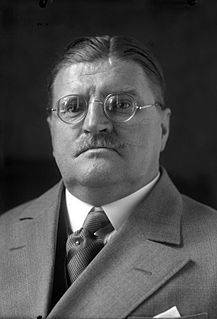 W
WOtto Lebrecht Eduard Daniel Meissner was head of the Office of the President of Germany from 1920 to 1945 during nearly the entire period of the Weimar Republic under Friedrich Ebert and Paul von Hindenburg and, finally, under the Nazi government under Adolf Hitler.
 W
WErnst Meyer was a German Communist political activist and politician and a general secretary of the KPD. He is best remembered as a founding member and top leader of the Communist Party of Germany and as the leader of that party's fraction in the Prussian Landtag. A political opponent of Ernst Thälmann, Meyer was moved out of the top party leadership after 1928, not long before his death of tuberculosis-related pneumonia at the age of 43.
 W
WFriedrich Minoux was a German industrialist and financier who is best known for being one of the owners of the Wannsee House, where the namesake conference that would decide the fate of millions at the hands of the Nazis during World War II was held in early 1942.
 W
WArthur Moeller van den Bruck was a German cultural historian and writer, best known for his controversial 1923 book Das Dritte Reich, which promoted German nationalism and was a strong influence on the Conservative Revolutionary movement and later the National Socialist German Workers Party. From 1906 to 1922, he also published Elisabeth Kaerrick's first full German translation of Dostoyevsky's works.
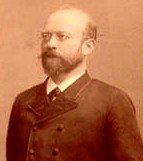 W
WIsaac Albert Mosse was a German judge and legal scholar. Mosse's importance lies in his work on Japan's Meiji Constitution and his continuation of Litthauer's Comments on the German Commercial Code.
 W
WErich Mühsam was a German-Jewish antimilitarist anarchist essayist, poet and playwright. He emerged at the end of World War I as one of the leading agitators for a federated Bavarian Soviet Republic, for which he served 5 years in prison.
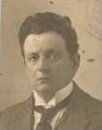 W
WLothar Popp was a German revolutionary and a leader of the sailors' revolt in Kiel.
 W
WKurt Ferdinand Friedrich Hermann von Schleicher was a German general and the last Chancellor of Germany during the Weimar Republic. A rival for power with Adolf Hitler, Schleicher was murdered by Hitler's SS during the Night of the Long Knives in 1934.
 W
WEva Siewert was a German journalist, writer, radio announcer and opera singer, who lived and worked mainly in Berlin.
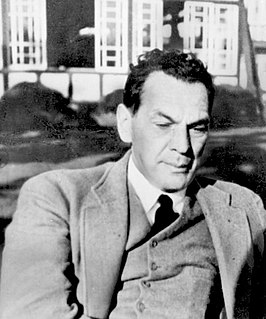 W
WRichard Sorge was a German journalist and Soviet military intelligence officer who was active before and during World War II and worked undercover as a German journalist in both Nazi Germany and the Empire of Japan. His codename was "Ramsay". A number of famous personalities considered him one of the most accomplished spies.
 W
WAdolf Wagner was a German soldier and high-ranking Nazi Party official born in Algrange, Alsace-Lorraine.
 W
WJohannes Winkler was a German rocket pioneer who founded the first German rocket society and launched the first successful liquid-fuelled rocket in Europe.
 W
WPeter Graf Yorck von Wartenburg was a German jurist and a member of the German Resistance against Nazism. He studied law and politics in Bonn and Breslau from 1923 to 1926, gaining his doctorate in Breslau in 1927 and passing the civil service entrance examination for lawyers in Berlin in 1930. He married Marion Winter that same year.
 W
WEduard Zuckmayer was a German pedagogue, composer, conductor and pianist. He was the older brother of the famous German writer Carl Zuckmayer (1896–1977).